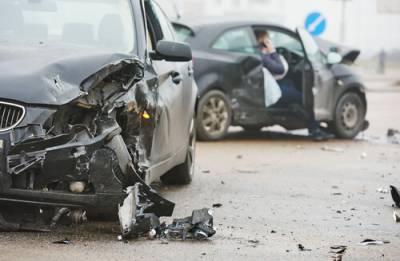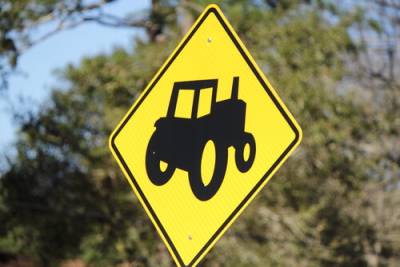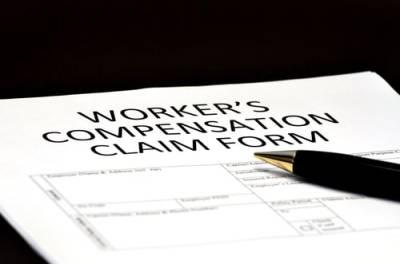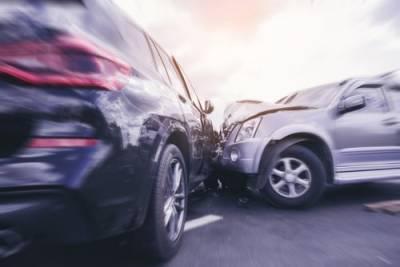Recent Blog Posts
Will a Pre-Existing Condition Prevent Me From Receiving Workers’ Compensation?
 If you have been injured at work, you may be experiencing significant pain and discomfort, and need to see a doctor. However, you may be unsure about how to address the costs of medical care or whether your income could be affected by the requirement to take time off while you are recovering. While workers' compensation benefits are available for injuries that occurred in the workplace, you may also be wondering if your workers' comp claim will be affected by any pre-existing conditions you have. The answer is not always simple, but in general, you should still be eligible for benefits even if you have a pre-existing condition. By understanding how the workers' compensation laws in Illinois address pre-existing conditions, you can make sure you receive the benefits you deserve.
If you have been injured at work, you may be experiencing significant pain and discomfort, and need to see a doctor. However, you may be unsure about how to address the costs of medical care or whether your income could be affected by the requirement to take time off while you are recovering. While workers' compensation benefits are available for injuries that occurred in the workplace, you may also be wondering if your workers' comp claim will be affected by any pre-existing conditions you have. The answer is not always simple, but in general, you should still be eligible for benefits even if you have a pre-existing condition. By understanding how the workers' compensation laws in Illinois address pre-existing conditions, you can make sure you receive the benefits you deserve.
Workers' Compensation and Pre-Existing Conditions
What Are the Most Common Reasons for Commercial Truck Rollovers?
 When a tractor-trailer truck rolls over, it can cause a great deal of damage, especially if the truck collides with other vehicles. If you were involved in a rollover accident with a commercial truck, then you might have significant injuries that required hospitalization and surgery. You might have difficulty returning to work or providing for your family while you recover. The good news is that you might be able to recover compensation for your losses by filing a truck accident lawsuit against the truck driver or trucking company. But before you can do that, it is important to understand what caused the accident.
When a tractor-trailer truck rolls over, it can cause a great deal of damage, especially if the truck collides with other vehicles. If you were involved in a rollover accident with a commercial truck, then you might have significant injuries that required hospitalization and surgery. You might have difficulty returning to work or providing for your family while you recover. The good news is that you might be able to recover compensation for your losses by filing a truck accident lawsuit against the truck driver or trucking company. But before you can do that, it is important to understand what caused the accident.
Negligence Leading to Truck Rollover Accidents
There are many different factors that can contribute to a commercial truck rollover accident. Some of the most common reasons include:
-
Unsecured Loads: If a truck's cargo is not properly secured, then it can shift during transport. This can throw off the balance of the truck, making it more likely to tip over, especially when a truck driver is traveling at high speeds or negotiating tight corners.
When Can Speeding Violations Lead to Car Accidents?
 Drivers regularly commit traffic violations out of carelessness, because they are behind schedule, or simply because they do not believe that it is necessary to obey the law. Speeding is one of the most common violations, and most drivers exceed the speed limit at some point, whether they are traveling on familiar roads during their daily commutes or taking long road trips. Unfortunately, speeding can significantly increase the likelihood of car accidents, which may cause serious injuries or even fatalities.
Drivers regularly commit traffic violations out of carelessness, because they are behind schedule, or simply because they do not believe that it is necessary to obey the law. Speeding is one of the most common violations, and most drivers exceed the speed limit at some point, whether they are traveling on familiar roads during their daily commutes or taking long road trips. Unfortunately, speeding can significantly increase the likelihood of car accidents, which may cause serious injuries or even fatalities.
Why Speeding Puts Other People on the Road in Danger
While speeding is not always the direct cause of car accidents, it is a contributing factor in many collisions. Traveling at faster speeds increases the distance that a driver needs to stop, and it also makes it more difficult to maneuver around obstacles. In fact, statistics show that in the United States, around 10,000 people are killed in car accidents involving speeding each year, making up more than 25 percent of all fatal traffic accidents. This issue has become even more serious in recent years; in 2020, 11,258 people were killed because of speeding, accounting for 29 percent of car accident fatalities.
What Are the Most Common Types of Nursing Home Abuse?
 Many families rely on nursing homes to ensure that their elderly loved ones are cared for. A nursing home or assisted living facility is meant to be a safe, healthy, supportive environment where a person can live comfortably, enjoy their time around others, and receive the proper medical and personal care. Unfortunately, nursing home abuse and neglect is a reality in many facilities across the country. Families need to be aware of the different types of abuse that can occur, and those who are concerned that their loved ones have been the victims of abuse can work with a personal injury attorney to determine their legal options.
Many families rely on nursing homes to ensure that their elderly loved ones are cared for. A nursing home or assisted living facility is meant to be a safe, healthy, supportive environment where a person can live comfortably, enjoy their time around others, and receive the proper medical and personal care. Unfortunately, nursing home abuse and neglect is a reality in many facilities across the country. Families need to be aware of the different types of abuse that can occur, and those who are concerned that their loved ones have been the victims of abuse can work with a personal injury attorney to determine their legal options.
Forms of Abuse That Can Affect Nursing Home Residents
There are many different types of nursing home abuse, but the actions that can cause harm to residents will often fall into the following categories:
Are Children at Risk Due to Dangerous Baby Swings and Rockers?
 There are numerous different types of consumer products that may present a risk of injury to people. While adults may be able to recognize the potential dangers of a product, children often cannot, and they may therefore be seriously injured due to defective baby products, toys, or other items. Recently, millions of defective baby swings and rockers were recalled due to safety issues that could potentially harm infants. Families of children who are injured by dangerous products may be able to pursue compensation from a manufacturer through a product liability lawsuit.
There are numerous different types of consumer products that may present a risk of injury to people. While adults may be able to recognize the potential dangers of a product, children often cannot, and they may therefore be seriously injured due to defective baby products, toys, or other items. Recently, millions of defective baby swings and rockers were recalled due to safety issues that could potentially harm infants. Families of children who are injured by dangerous products may be able to pursue compensation from a manufacturer through a product liability lawsuit.
Recall of Baby Products Manufactured by 4moms
On August 15, 2022, the Consumer Products Safety Commission announced a recall of baby swings and rockers that are in wide use throughout the United States and Canada. These items, sold at retail stores and online, were found to cause danger to infants due to the straps used on these products.
When Can Dog Bite Victims Receive Compensation for Their Injuries?
 Dogs can be lovable pets that are treated like a member of a family. However, while many dogs are friendly, others may be aggressive toward strangers or protective of their property. Even a seemingly calm dog may behave unexpectedly and attack a person with no warning. Dog bites can have a serious effect on the victim's life. Not only can the physical injuries be severe, but the emotional trauma of being attacked by an animal can be significant. If you or someone you love has been the victim of a dog bite, you may be wondering if you are entitled to compensation for your injuries.
Dogs can be lovable pets that are treated like a member of a family. However, while many dogs are friendly, others may be aggressive toward strangers or protective of their property. Even a seemingly calm dog may behave unexpectedly and attack a person with no warning. Dog bites can have a serious effect on the victim's life. Not only can the physical injuries be severe, but the emotional trauma of being attacked by an animal can be significant. If you or someone you love has been the victim of a dog bite, you may be wondering if you are entitled to compensation for your injuries.
Liability for Dog Bite Injuries
In Illinois, dog owners are held strictly liable for damages suffered by a victim of a dog bite. This means that the victim does not need to prove that the dog owner was negligent in order to recover compensation. The victim simply needs to show that he or she was bitten by the dog and suffered injuries as a result. There are some exceptions that may apply, such as when the victim acted in a way that provoked the dog into attacking them or when a person was trespassing on private property. However, in most cases, a dog's owner will be liable for injuries and damages suffered by dog bite victims, regardless of whether they were aware that a dog had a history of aggressive behavior or whether the dog had ever bitten someone in the past.
UPDATE: What Are the Most Common Types of Tractor Accidents?
 Originally published: April 9, 2019 -- Updated: August 3, 2022
Originally published: April 9, 2019 -- Updated: August 3, 2022
Update: In addition to understanding the types of tractor accidents that commonly occur on farms as detailed below, victims who are injured in these situations will need to determine who was responsible. By establishing fault for an injury, a person can ensure that they will be able to pursue compensation from all available sources. Accidents involving tractors may occur because of:
-
Operator error - A person operating a tractor may fail to follow the correct safety procedures, causing them to strike or run over other farm workers or causing a rollover accident that injures multiple people. Farm employees who are injured on the job because of the actions of a tractor operator will typically be eligible for workers’ compensation benefits.
-
Defective parts - If the components of a tractor do not work correctly, entanglement or other types of accidents can occur. In these cases, a victim may be able to pursue a product liability lawsuit against the manufacturer of the tractor or other equipment.
Can I Bring a Personal Injury Claim Against a Drunk Driver?
 Driving under the influence of alcohol leads to over 10,000 fatal accidents each year. Whether a driver assumed that he or she was sober enough to drive safely or simply does not care about the consequences of his or her actions, drunk driving is an extremely dangerous act. If you were hurt or a loved one was killed in a crash caused by a drunk driver, you may be able to bring a civil claim against the driver in the form of a personal injury claim or wrongful death claim. You may be able to recover financial compensation for both economic and non-economic damages resulting from the crash.
Driving under the influence of alcohol leads to over 10,000 fatal accidents each year. Whether a driver assumed that he or she was sober enough to drive safely or simply does not care about the consequences of his or her actions, drunk driving is an extremely dangerous act. If you were hurt or a loved one was killed in a crash caused by a drunk driver, you may be able to bring a civil claim against the driver in the form of a personal injury claim or wrongful death claim. You may be able to recover financial compensation for both economic and non-economic damages resulting from the crash.
Civil Liability for a Drunk Driving Crash
If an intoxicated driver causes a crash in which someone is seriously hurt or killed, the driver will almost certainly face criminal charges for his or her actions. However, even if a drunk driver is convicted and put in jail, this does nothing to compensate victims for the losses they suffered. Fortunately, drunk driving accident victims may have recourse through the civil court system.
Common Office Worker Injuries Leading to Workers’ Compensation
 Office jobs are generally considered to be safer than blue-collar jobs. However, office workers are still at risk of many different injuries. Some office injuries are caused by sudden accidents, while other injuries slowly develop over time. If you or a loved one sustained an injury while working in an office, you may have questions about your right to financial compensation through workers’ compensation. Fortunately, office workers have the same right to compensation as workers in any other industry. That being said, it is sometimes hard for office workers to get the compensation they need. An experienced workers’ compensation attorney can help office employees fight for their right to fair compensation.
Office jobs are generally considered to be safer than blue-collar jobs. However, office workers are still at risk of many different injuries. Some office injuries are caused by sudden accidents, while other injuries slowly develop over time. If you or a loved one sustained an injury while working in an office, you may have questions about your right to financial compensation through workers’ compensation. Fortunately, office workers have the same right to compensation as workers in any other industry. That being said, it is sometimes hard for office workers to get the compensation they need. An experienced workers’ compensation attorney can help office employees fight for their right to fair compensation.
Office Injuries That May Qualify for Workers’ Comp
Sitting in an office chair filling out paperwork or typing on a computer may seem like a low-risk activity. However, people working in an office environment get hurt all the time.
Shocking Number of Car Accidents Are Caused by Daydreaming and Being Lost in Thought
 Everyone has experienced the feeling of being lost in thought. Whether thinking about work, family troubles, or even what to cook for dinner, being preoccupied with thoughts is not uncommon. Unfortunately, this seemingly harmless habit is estimated to cause thousands of fatal and injurious car crashes each year. One study found that daydreaming is actually the number one cause of fatal car crashes.
Everyone has experienced the feeling of being lost in thought. Whether thinking about work, family troubles, or even what to cook for dinner, being preoccupied with thoughts is not uncommon. Unfortunately, this seemingly harmless habit is estimated to cause thousands of fatal and injurious car crashes each year. One study found that daydreaming is actually the number one cause of fatal car crashes.
Inattention Behind the Wheel is More Dangerous Than Previously Realized
Driving is a complex process that uses our eyes, ears, hands, and feet. However, driving becomes second nature to most people. Most adults do not even have to think about the steps involved in driving. Muscle memory takes over and the process becomes automatic. The driver stops thinking about driving.
When a driver’s mind begins to wander, he or she is more likely to make mistakes that can lead to a crash. For example, a parent worrying about his child’s school performance instead of watching the road may begin to speed without even realizing it. Similarly, a driver lost in a daydream may not notice brake lights in front of her until it is too late to stop.









